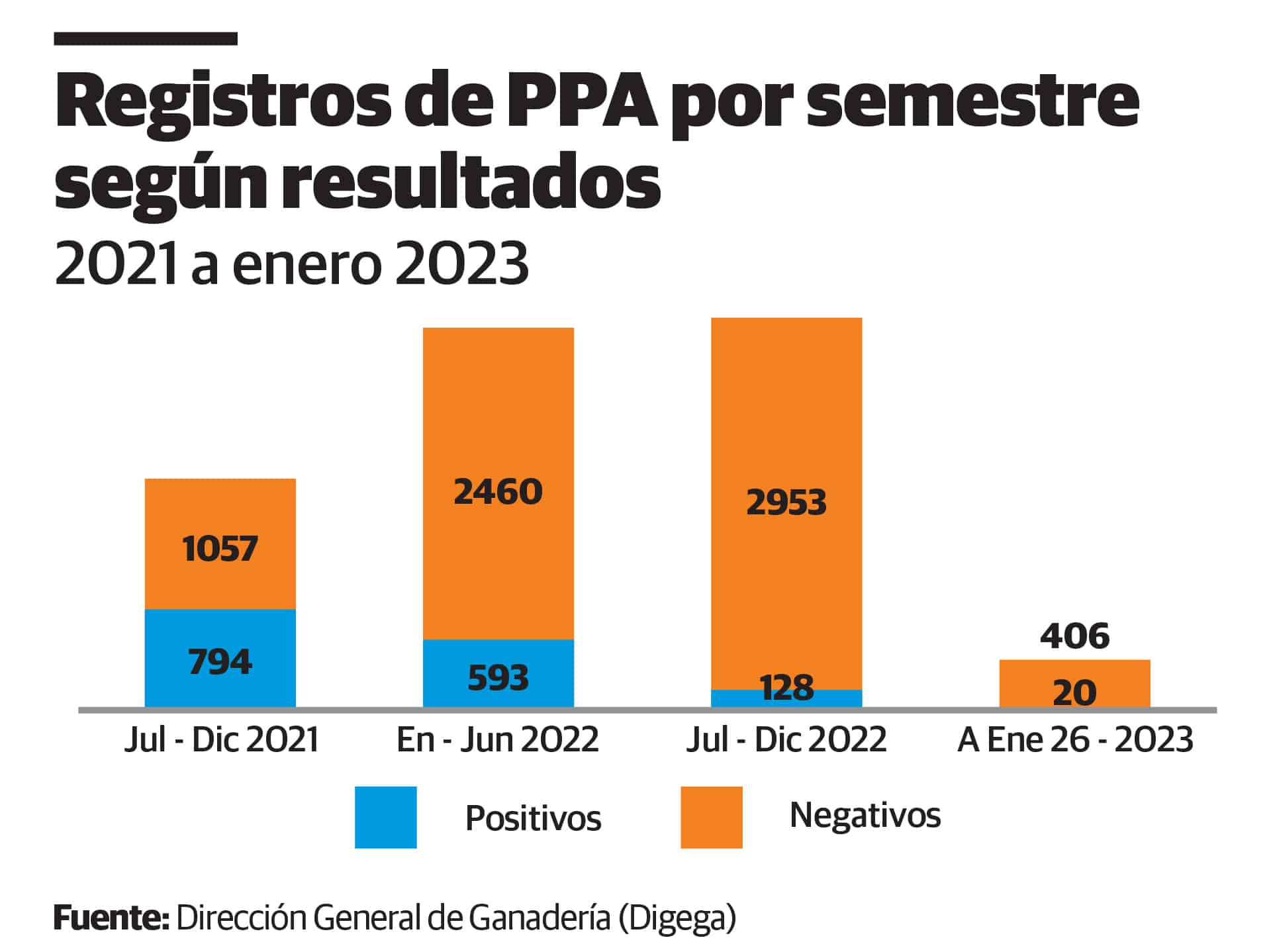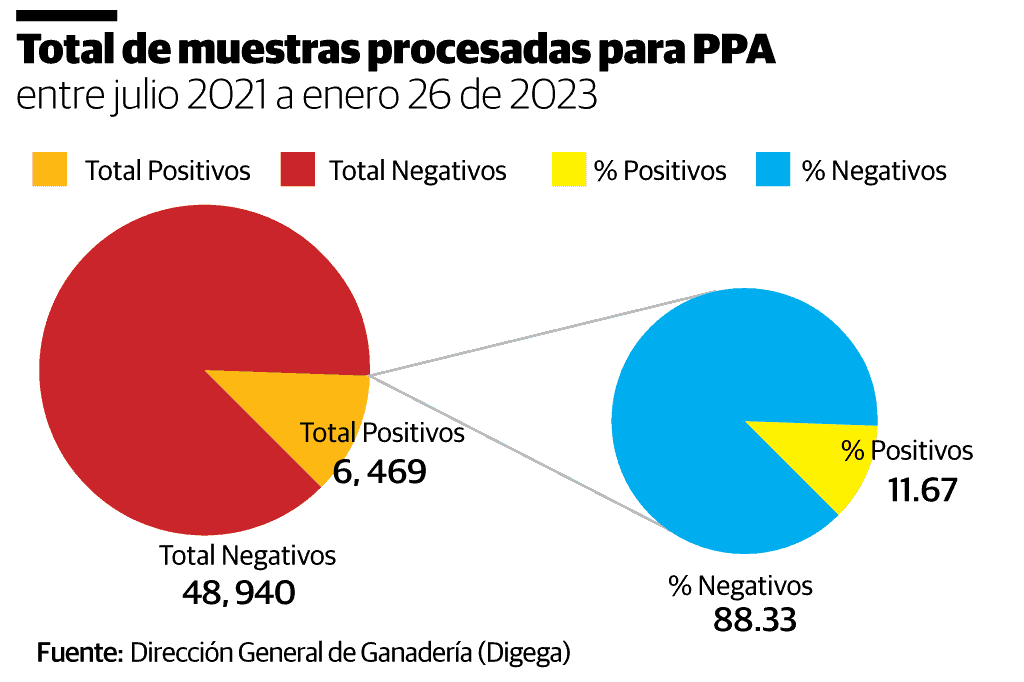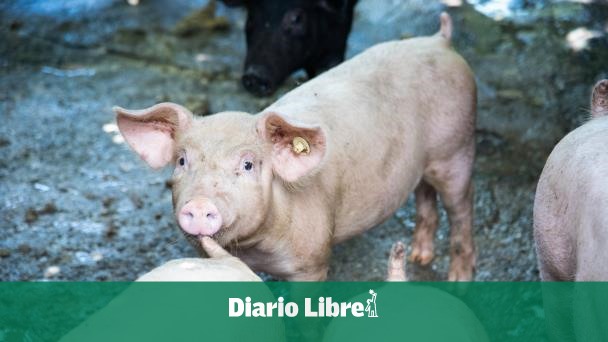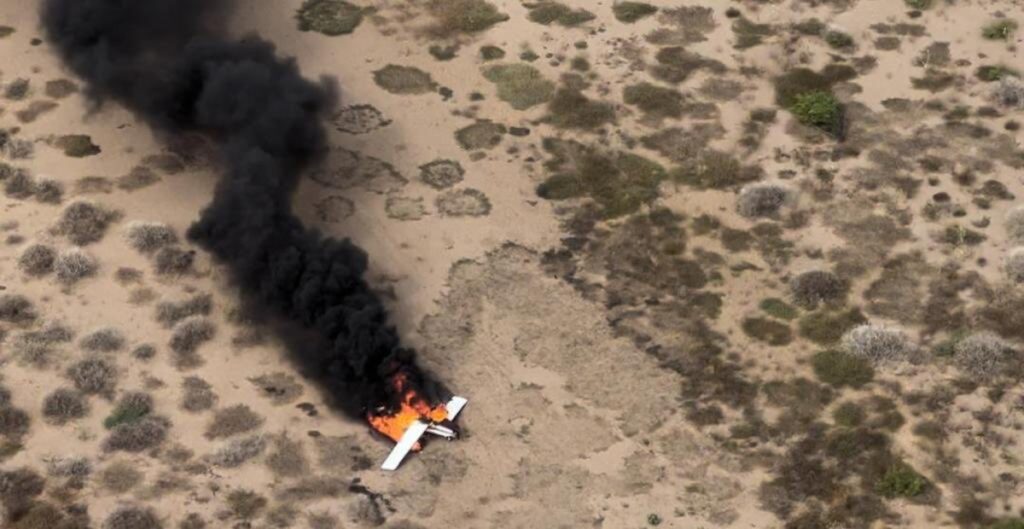In mid-2021, the african swine fever (PPA) in the Dominican Republic. Since then, different sectors have considered the total elimination of pigs in the country and organizations, such as the Dominican Agribusiness Board (JAD), indicated that more than 14,500 million pesos had to be sought for the slaughter of the animals.
“It sounds nice and perhaps that is the formula, but without the economic and social impacts, because to eliminate all the pigs in the country we are talking about 14.5 billion pesos,” said the executive president of the Dominican Agribusiness Board (JAD), Osmar Benitezin October 2021.
Official statistics show that the complete removal of pigs has not been necessary and ASF positivity has decreased in the country. The recent report “Situation of the african swine fever in the Dominican Republic”, of the Department of Sanitary Campaign of the General Directorate of Cattle raising (Digega), indicates that only in January 2023, of 426 tests, 20 were positive.
In the report prepared by the Digega It is detailed that, of a total of 55,409 samples processed from July 2021 to January 26, 2023, according to the results of the records, 6,469 cases resulted positivefor 11.67% of the universe, and 48,940 negatives, for 88.33% of the total.
The World Organization for Animal Health reports that ASF is a highly contagious viral disease of domestic and wild pigs, with a mortality rate that can reach 100%.
Although this does not represent a danger to human health, it produces negative effects on pig populations and on the productive economy. The entity highlights that currently, there is no effective vaccine against ASF.

During the period January 2022 and January 2023, the report indicates that the northeast region -which covers the provinces of María Trinidad Sánchez, Duarte, Sanchez Ramirez and Samaná – was the one that registered the highest ASF cases.
- From January 2022 to January 2023, the northeast region registered 183 positive cases, followed by the central region with 153 cases. The latter covers the provinces of Monte Plata, Santo DomingoSan Cristóbal, San José de Ocoa and Peravia.
In the northern region, which includes the provinces of Santiago, Puerto Plata and Espaillat, 142 cases were detected in one year and 108 in the northwest. The northwest covers the provinces of Montecristi, Dajabón, Valverde and Mao.

In the case of the eastern region -which covers the provinces Hato MayorEl Seibo, La Altagracia, La Romana and San Pedro de Macorís-, this area registered 66 positive cases of ASF between January 2022 and January 2023.
In the north-central part, Digega has registered a total of 56 positive cases of ASF in the provinces of La Vega and Monseñor Nouel. Instead, in the South Zone In the country the laboratories returned 17 and in the southwest 16.
The southern region covers the provinces of Barahona, Pedernales, Independencia and Bahoruco. The southwest includes the provinces of Azua, San Juan and Elias Pina.
Compensation
By detecting the african swine feverthe Ministry of Agriculture reported that the Dominican government has disbursed 1,403,209,799 pesos to compensate the producers affected by the slaughter of 187,659 pig units.
The figures were recently offered in a meeting held by the Minister of Agriculture, Limber Cruz, with the Agricultural Cabinetin an agenda that included a report on the current situation of the ASF management plan, review of the draft decree on biosafety in pig farms, as well as public-private articulation for the execution of a Comprehensive Proposal before the PPA.
The data from the agricultural portfolio also indicate that it has been possible to have 20 canine pairings in operation for sanitary surveillance in seven airports of the country, in addition to obtaining laboratory test results in an average of 24 hours, and that 100% of the operational detection and control brigades have sufficient equipment and materials for the response.


















